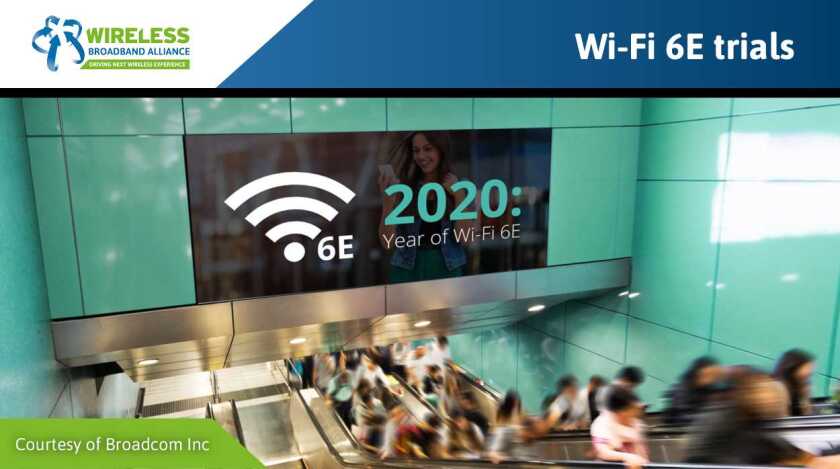Confirming the news, the Wireless Broadband Alliance (WBA) said the development would remove pain points currently caused by overcrowding on many Wifi networks. The new band will provide more capacity than all the other Wifi bands put together and deliver connections with speeds equivalent to the new advanced 5G mobile networks.
“Wi-Fi 6 networks extended into the 6GHz spectrum represent a multi-generational shift in Wifi services and the user experience,” said Tiago Rodrigues, CEO, WBA.
“This trial is an important step in the process of effectively demonstrating the benefits that Wifi networks can deliver in the 6GHz spectrum band. The Wi-Fi 6 standard and the 6GHz spectrum in combination can play a powerful role to deliver advanced mobile services to consumers, business and industry.”
As 500 million Wi-Fi 6E compatible laptops and mobile devices are expected to be in use in the next three years. Broadcom and Intel are currently developing Wi-Fi 6E devices, with Broadcom recently announcing a broad portfolio of Wi-Fi 6E chips targeted for production later this year,
Eric Mclaughlin, VP of the Client Computing Group and GM of the Wireless Solutions Group at Intel Corporation, said: “Opening the 6GHz spectrum will change the game for Wi-Fi 6 by delivering faster speeds, lower latency, and more reliable connectivity for a wide range of consumer and professional applications. Intel is committed to partnering with the industry to drive innovation and enable leadership connectivity experiences, and we look forward to bringing our Wi-Fi 6E products to Intel PC platforms that can harness the full benefits of the most advanced Wi-Fi technology available.”
Designed for use in congested locations, the next stage of Wi-Fi 6E trials is scheduled to take place over the coming months and will include subway transportation systems and in-home testing with CableLabs®,SK Telecom and Transit Wireless.





